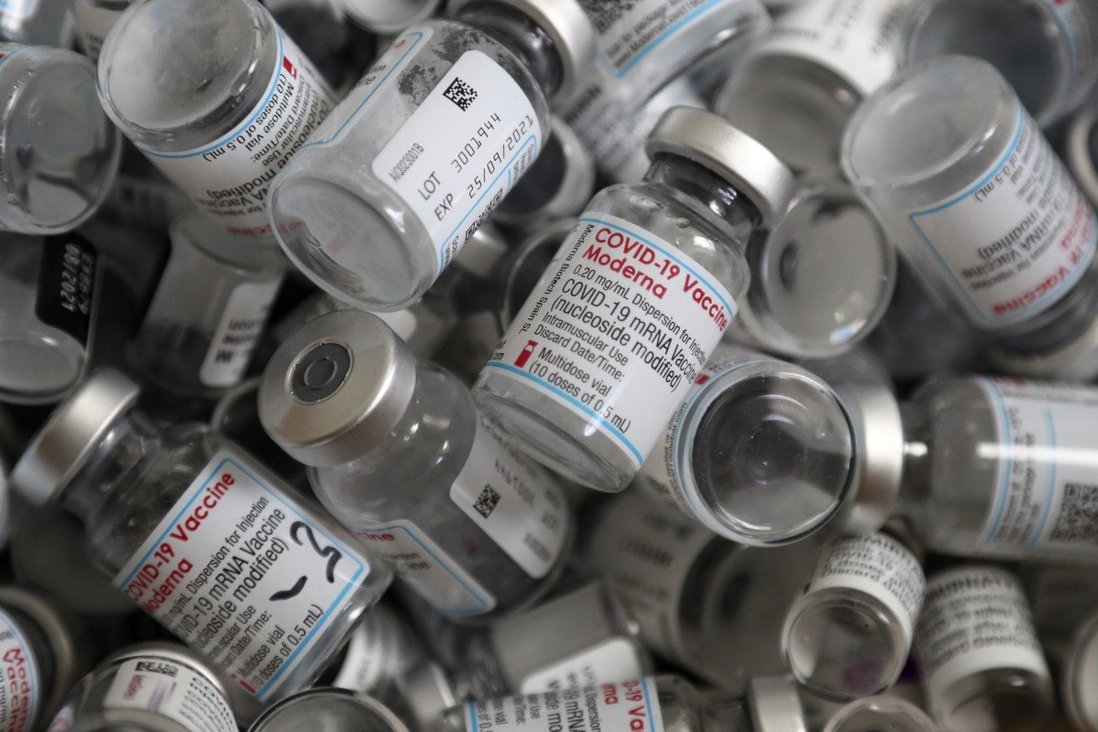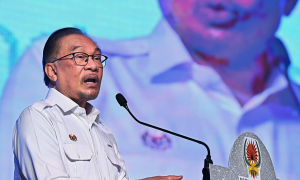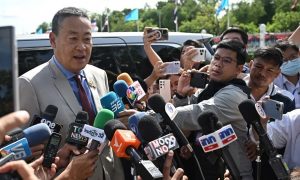The United States had previously committed to donating 60 million Covid-19 vaccine doses, but then raised it to 80 million, with Asia initially one of the top recipients.
The United States is donating a massive number of vaccine doses to countries around the world in a bid to save lives and hasten the end of the coronavirus pandemic.
On June 3, President Joe Biden outlined the strategy and shared the plan to distribute the first tranche of the vaccines this month, with 75% of the doses made available to various countries through COVAX, the vaccine equity programme established in part by the World Health Organization to get more vaccines to some of the world’s poorest countries, with donors covering the costs.
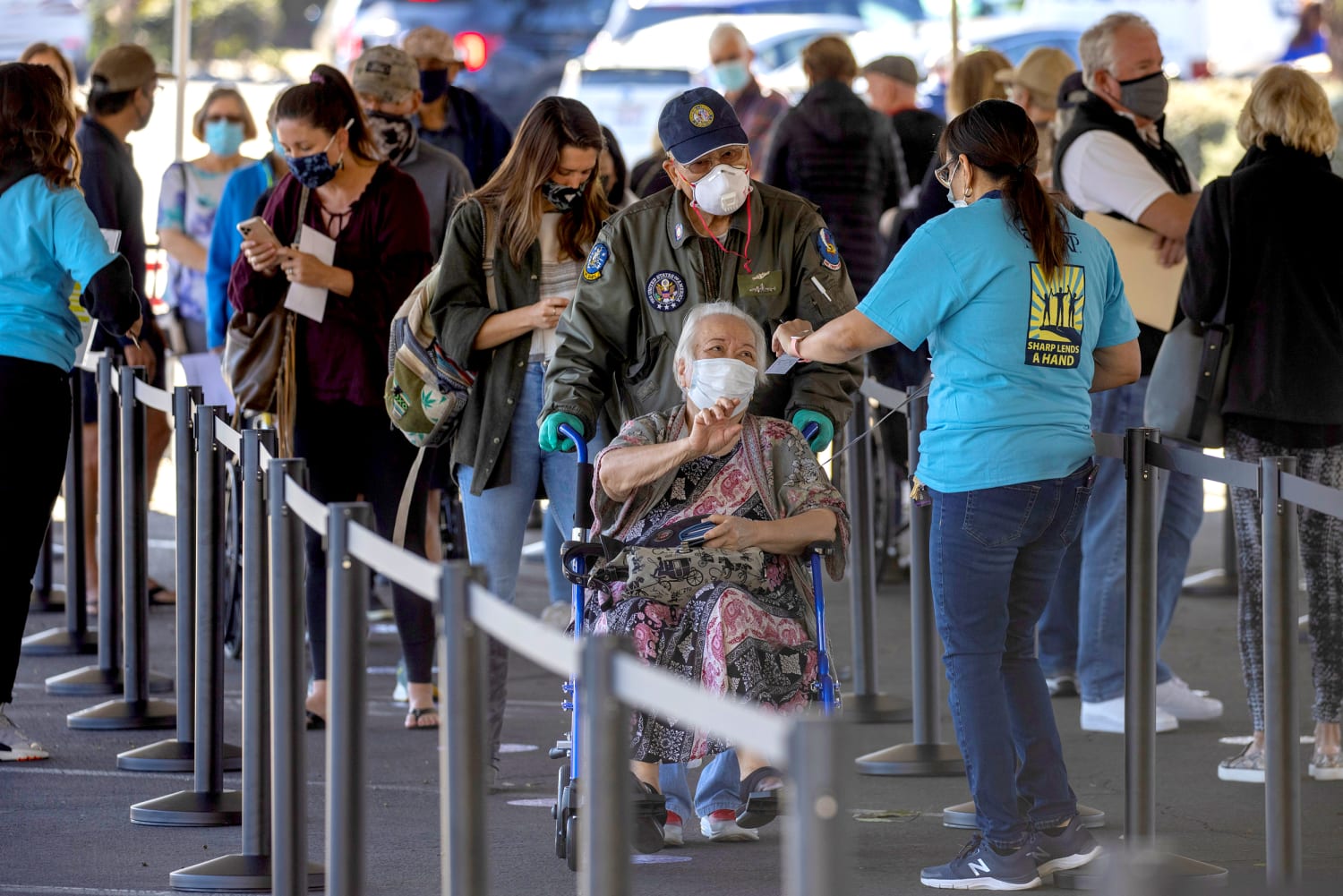
Now that the US has made incredible progress in beating back the pandemic through a successful vaccination roll-out plan which kicked off as a priority when Biden took office in January, there had been mounting calls for the world’s richest country to share its large surplus of vaccines with other countries. And now, the US is doing just that.
Earlier this year, Biden had pledged to donate 60 million Covid-19 vaccine doses to countries around the world – then more recently bumped it up to 80 million.
In a statement, the White House said that for the doses shared through COVAX, the US would prioritise countries in Latin America and the Caribbean, South and Southeast Asia, and Africa as it aims to help curb or even prevent fresh surges of infections.
“We are sharing these doses not to secure favours or extract concessions,” President Biden said. “We are sharing these vaccines to save lives and to lead the world in bringing an end to the pandemic, with the power of our example and with our values.”
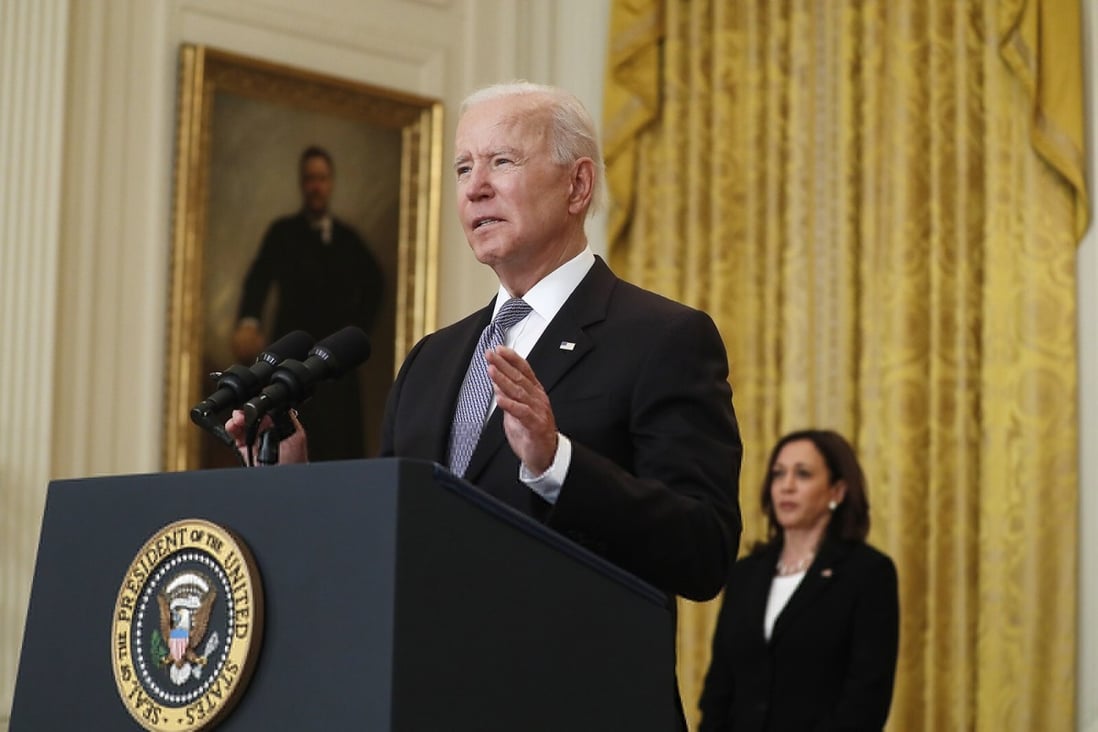
National Security Adviser Jake Sullivan underscored the motivation behind the donation, as well: “The United States is not doing this as some kind of back-and-forth deal where we are getting something in return,” he explained at a White House briefing. “We are giving these [vaccines] for a single purpose. It is the purpose of ending this pandemic.”
The comments were especially notable as countries such as China have attracted fierce criticism for seeking to boost their influence through “vaccine diplomacy.” In a video conference hosted by the Foreign Correspondents’ Club of Japan in Tokyo on June 3, Taiwan’s Foreign Minister, Joseph Wu, said China’s vaccine diplomacy is creating divisions in the international community, adding that the country only provides its domestically manufactured vaccines and other pandemic relief aid “to those who are willing to accept political partnership with Beijing.”
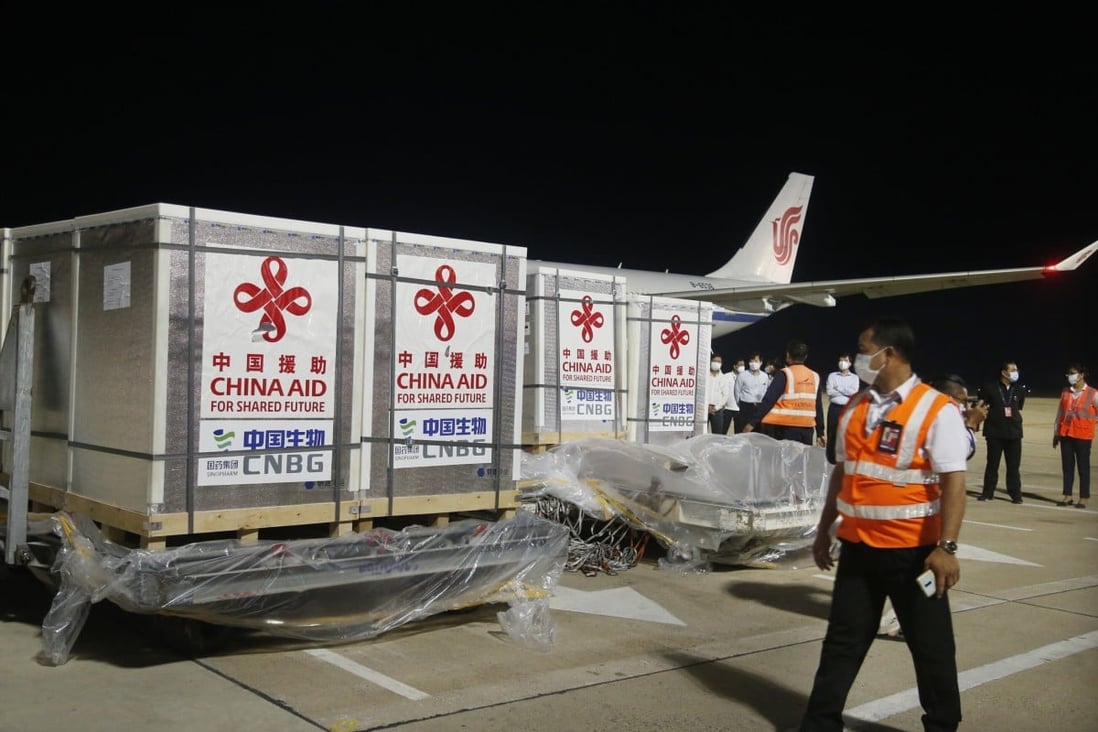
A STAGGERING DONATION PLEDGE
The commitment made by the US is to disburse all 80 million doses by the end of June. It’s an incredibly ambitious goal, and the vaccines will no doubt be gladly received by a number of countries in need.
The distribution of the first tranche, comprising 25 million doses, is already underway, according to White House Covid-19 response coordinator Jeff Zients, adding that the first tranche is coming from America’s federal supply of doses and will be a combination of the three vaccines with current US emergency use authorisation: Johnson & Johnson, Moderna, and Pfizer/BioNTech.
The Johnson & Johnson vaccine is of particular use in many poor and developing countries as only one dose is required. The other vaccines require two shots, given several weeks apart.
ASIA BENEFITS
Though Malaysia is not necessarily high on the priority list of countries set to receive the donation – likely because, at least on paper, the 66.7 million doses the Malaysian government has said are secured are more than enough to immunise the country’s population – Malaysia is indeed still among the countries in Asia which are collectively set to get the biggest cut of the first tranche.
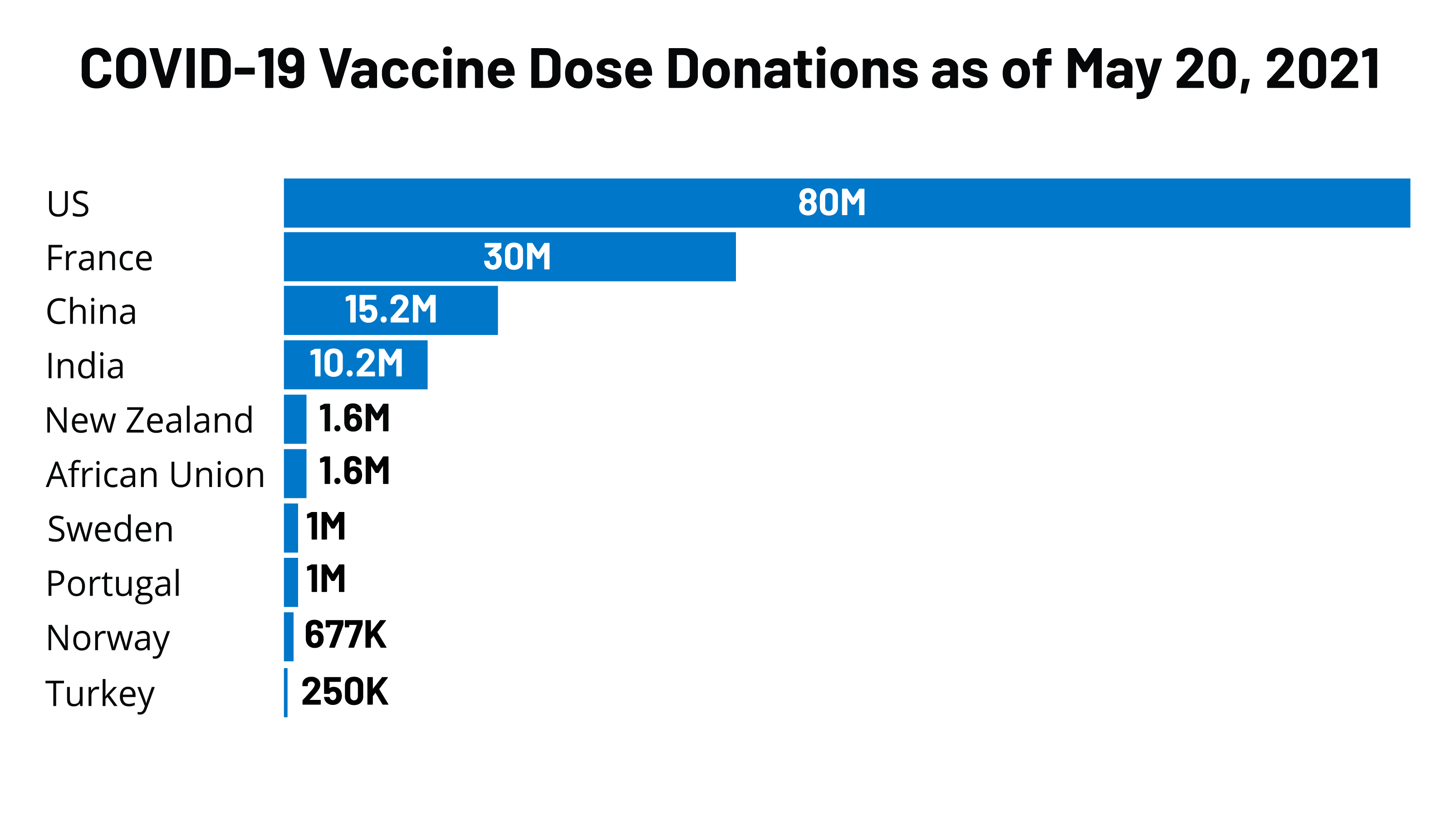
According to the US plan, of its first 25 million doses, 7 million are allocated for Asia, notably India, Nepal, Bangladesh, and Afghanistan in South Asia, and Vietnam, the Philippines, Indonesia, Laos, and Malaysia in Southeast Asia.
Some 6 million, meanwhile, are being distributed to nations in South and Central America and the Caribbean, including Brazil, Argentina, Colombia, Costa Rica, and Haiti.
Another 5 million are earmarked for Africa and will be distributed in coordination with the African Union, National Security Adviser Jake Sullivan advised.
The remaining several million doses in the first tranche will be shared directly (not through COVAX) with countries experiencing surges or that are in crisis, as well as with neighbours Canada and Mexico and “partner recipients” such as South Korea, Ukraine, Gaza, and Iraq. Mr Sullivan explained the US wants to “retain some flexibility” about allocating doses outside the COVAX formula as necessary, so in the first tranche, about 25% of the doses would be shared directly with countries in need.
Through COVAX, nearly 80 million vaccine doses have been delivered to 127 countries and territories, with AstraZeneca making up 97% of doses supplied so far – the rest being Pfizer-BioNTech.

"ExpatGo welcomes and encourages comments, input, and divergent opinions. However, we kindly request that you use suitable language in your comments, and refrain from any sort of personal attack, hate speech, or disparaging rhetoric. Comments not in line with this are subject to removal from the site. "


